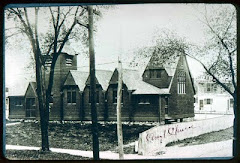In Rogers & Hammerstein’s The Sound of Music, Maria finds true love, and is overwhelmed by her good fortune; she can only suppose that, “Somewhere in my youth or childhood I must have done something good.” That’s not at all how life works. In spite of our sinfulness, God chooses to do something good, and not because of any foreseen goodness in us. We’re unworthy of His love. God takes the initiative; apart from His intervention, we would remain children of wrath.
This doctrine of grace says that we have been chosen by God the Father. This is the Biblical doctrine of “election”. God has a plan to save us. We cannot save ourselves. We don’t generate faith; it is a gift. We were chosen, set apart, according to God’s plan. God has a special use for us. Nothing can happen to us apart from God. We are part of His ultimate purpose. The Apostle Paul says in II Thessalonians 2:13, “from the beginning God chose you to be saved through the sanctifying work of the Spirit and through belief in the truth.” God is sovereign in salvation; our destiny is in His hands.
God isn’t searching for people who are able or willing to accept salvation. He knows that, apart from His involvement, none would. But God is not limited by our choices. Jesus said, “You did not choose Me, but I have chosen you…many are called, few are chosen” (Jn 15:16 & Mt 22:14). Someone said, “God has reasons of His own for choosing me for salvation, but I did not supply Him with those reasons.” It remains a mystery.
It’s important to understand that God does not owe any of us His mercy. If He had wanted to simply be just, He could have condemned the entire human race. Since none deserve salvation, in saving some, God is merciful. Some receive mercy, and others receive justice. No one receives injustice.
Election means that we’ve been adopted, taken into God’s family. We’re given a new identity and destiny as His children. We’re outsiders no longer. Peter says in his first epistle that we have “an inheritance that can never perish, spoil, or fade” (1:4). This is a great comfort.
After considering this teaching, you might wonder: “Am I one of the elect?” The answer to that question is easy: Trust in Jesus as Lord. If you do that, you are one of the elect. God’s free invitation is simple: Look to Jesus, and live.
Weekend A La Carte (February 14)
1 day ago






